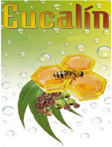Reversing the Trademark Trial & Appeal Board’s decision to dismiss an opposition, the US Court of Appeals for the Federal Circuit addressed the requirements for a trademark owner to employ “tacking” based on the use of a mark for one service in the context of a trademark application listing multiple services. Bertini v. Apple Inc., Case No. 21-2301 (Fed. Cir. Apr. 4, 2023) (Moore, C.J.; Taranto, Chen, JJ.)
Charles Bertini is a professional jazz musician who filed a notice of opposition to Apple’s application to register the mark APPLE MUSIC. Because the parties did not dispute that there was a likelihood of confusion between the two marks, the only disputed issue was which party’s mark was entitled to an earlier priority date. Bertini’s mark, APPLE JAZZ, had a priority date of June 13, 1985, for use in live music festivals and concerts. Apple’s mark, APPLE MUSIC, which was the subject of the opposition, had a priority date of June 8, 2015. In its application, Apple sought to register its mark for 15 broad service categories, including the production and distribution of sound recordings and the arranging, organizing, conducting and presenting of live musical performances.
Because Bertini’s mark had the earlier priority date, Apple attempted to use tacking to claim an earlier priority date to an APPLE mark used by Apple Corps. for gramophone records featuring music since August 1968. Apple purchased this mark from the Beatles’ Apple Corps. in 2007. Tacking allows a trademark owner to give a newly modified mark the priority date of its old mark, but only if both marks “create the same, continuing commercial impression so that consumers consider both as the same mark.” The Board found that Apple was entitled to tack back to use the 1968 date of use of the APPLE MUSIC mark and thus had priority over Bertini. The Board accordingly dismissed Bertini’s opposition. Bertini appealed.
The Federal Circuit first addressed the tacking standard in the context of trademark registration. The Court explained that in order to obtain an earlier priority date through tacking, an applicant must show that the old mark was associated with all of the goods and/or services listed in its application as of the proposed earlier priority date. The Court found that Apple failed to meet this burden. As of 1968, the APPLE mark was not associated with the service of “arranging, organizing, conducting, and presenting live musical performances.” Because this service was listed in Apple’s trademark application, the APPLE MUSIC mark application was not entitled to claim priority back to the priority date of the Apple Corps. APPLE mark. The Court noted that Bertini only needed to show priority of use of APPLE JAZZ for any service listed in Apple’s application to succeed in his opposition. Because the Court rejected Apple’s attempt to tack back to the 1968 priority date for all of Apple’s listed services where Apple could only show priority for one service listed in its application, Bertini met this burden. The Court also concluded [...]
Continue Reading
read more


 Subscribe
Subscribe




